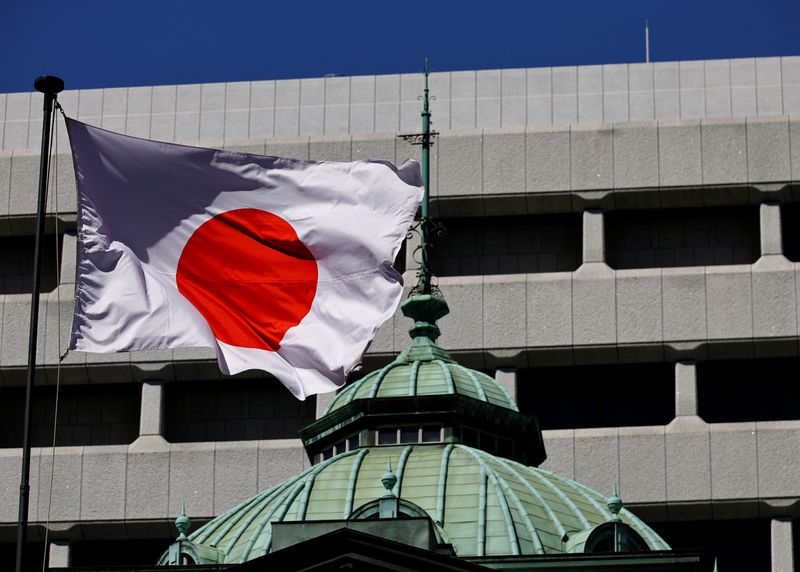By Leika Kihara
TOKYO (Reuters) - The Bank of Japan is on the verge of ending eight years of negative interest rate policy, as historical wage hikes heighten prospects for inflation to sustainably hit its 2% target.
But its nine-member board likely remains divided on how much support the fragile economy will need to sustain a recovery. The divergence may affect the BOJ's debate on the future pace of further interest rate hikes.
The following outlines the balance between the doves in the board who would prefer to spend more time reducing the scale of stimulus, the hawks who favour acting more swiftly toward policy normalisation and the neutrals who lie somewhere in between.
THE HAWKS
Board member Naoki Tamura, a former commercial bank executive, has been the most vocal advocate of an early exit from negative rates, signalling in August last year that the bank could take such action by March 2024.
Fellow board member Hajime Takata, a former bond strategist, also called for an overhaul of the BOJ's stimulus programme last month, saying that Japan was close to durably achieving the bank's 2% inflation target.
Among the BOJ's leadership, deputy governor Ryozo Himino is considered the most hawkish given his career as former head of Japan's bank regulator, which had long criticised the BOJ's negative rate policy for hurting lenders' margin.
THE DOVES
Toyoaki Nakamura, a former executive of electronics giant Hitachi (OTC:HTHIY), worries about the damage a stimulus exit could inflict on small and mid-sized firms. While he agrees on the need to end the BOJ's radical stimulus, he is cautious of acting too soon.
Former academic Asahi Noguchi, known as an advocate of aggressive monetary easing, and former economist Seiji Adachi are also considered as among dovish members of the board.
But bigger-than-expected wage hikes offered by big firms so far could convince some of the doves that conditions have fallen into place to at least push short-term rates to zero from -0.1%.
While one or several of them could dissent to a proposal to end negative rates, it is unlikely they will garner enough support within the board to delay an exit.
NEUTRALS
Deputy Governor Shinichi Uchida, a career central banker who is among architects of the BOJ's massive stimulus, had consistently warned of the dangers of a premature exit and therefore was seen as somewhat dovish on monetary policy.
But he delivered a speech in February that laid out plans for a post-negative rate monetary policy, dropping the strongest hint to date an end to the BOJ's massive stimulus was nearing.

Prospects of a near-term rate hike increased further after board member Junko Nakagawa, who was considered a neutral, voiced confidence earlier this month that Japan was making steady progress towards achieving the BOJ's 2% inflation target.
Governor Kazuo Ueda's stance has been the hardest to predict. While he has repeated the need to keep monetary policy ultra-loose, Ueda also signalled the BOJ's readiness to phase out stimulus when the time was right. Ultimately it is Ueda's view that matters most in the timing and pace of an exit.